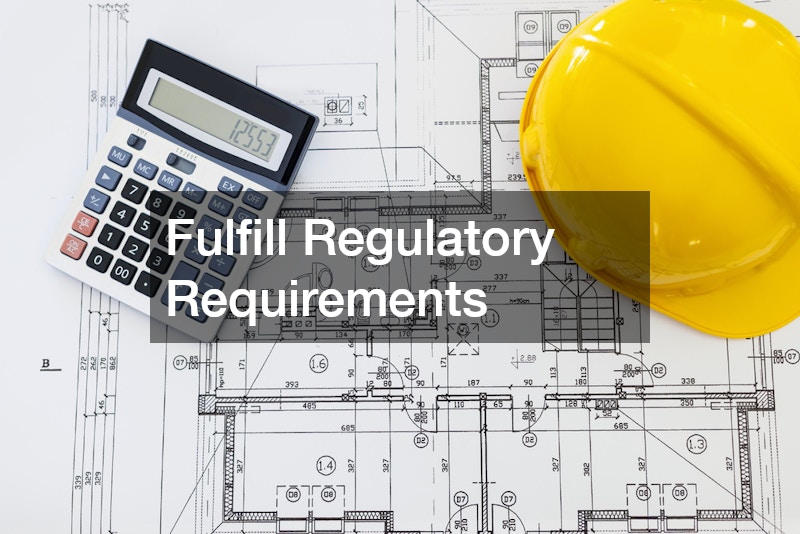Starting a business is a thrilling yet challenging journey that requires careful planning, smart decision-making, and plenty of perseverance. As an aspiring entrepreneur, you’ll be juggling numerous tasks—from choosing a legal structure to securing adequate financing—to transform your vision into a thriving reality. It’s easy to get caught up in the excitement and overlook key elements. However, a well-prepared approach can help you sidestep costly mistakes down the road.
In this blog, we’ll discuss 14 essential aspects you should address before opening your doors to the public. By doing so, you’ll establish a strong foundation for your operations, encourage steady business growth, and ensure you’re legally and financially protected. Let’s dive right in and map out a plan that sets your venture up for long-term success.
1. Draft a Comprehensive Business Plan
A clear, well-organized business plan is your roadmap for success. It spells out your company’s core purpose, outlines products or services you’ll be offering, identifies your target audience, and sets financial targets. The plan should detail your marketing approach, outline competitor research, and explain how you intend to stand out in your industry. This exercise clarifies your vision, making it easier to communicate your goals to partners and potential investors.
A robust business plan also serves as the backbone for any discussions regarding business loans. When you apply for financing, lenders will likely ask for specifics about your financial projections, your operating model, and your intended timeline for profitability. Having a detailed plan in hand will strengthen your credibility, increase your chances of approval, and set the foundation for the next steps in your entrepreneurial journey. Moreover, mapping out different scenarios and forecasting potential obstacles early on will help you plan for sustainable growth rather than leaving it to chance.
2. Secure the Right Funding

Once your business plan is polished, it’s time to secure the necessary funds. Many entrepreneurs think first about traditional business loans from banks, but you should explore other options as well. Online lenders, angel investors, venture capitalists, and even crowdfunding platforms can all be potential sources of capital. Whatever route you choose, ensure you fully understand the terms of repayment or ownership stake involved.
Make sure to consider your company’s short-term and long-term needs. How will you cover daily operational costs like rent, utilities, and salaries? Will you need additional capital for expansion or specialized equipment? Having a cushion will prevent unnecessary hiccups that stall your progress. Thoroughly evaluating your options at this stage can set the tone for financial stability and support your business growth over time.
3. Pick the Perfect Location
Location can make or break your new venture. You’ll need to consider customer access, proximity to suppliers, and zoning requirements for your particular type of business. For example, if you plan on running a retail store, you might look for a spot with high foot traffic. If you’re setting up a warehouse, cost and accessibility for delivery trucks may be more important than walk-in customers.
Equally crucial is planning for the structural and exterior needs of your chosen site. If the area around your building requires renovation or development, you might need to look into local commercial paving solutions to ensure parking lots or driveways are both safe and visually appealing. If you’re leasing a location, have open conversations with your landlord regarding any major improvements or maintenance tasks. Location plays a pivotal role in both customer satisfaction and your operational efficiency, so choose wisely.
4. Set Up Your Legal Structure
Deciding on a legal structure is one of the earliest yet most important moves you’ll make. Will your business be registered as a sole proprietorship, partnership, limited liability company (LLC), or corporation? Each setup offers unique advantages and poses different obligations related to taxes, liability protection, and administrative complexity.
Along with choosing a legal structure, make sure you’re aware of any local, state, and federal permits or licenses you need. Skipping this step could result in hefty fines or, worse, having to shutter your enterprise before it even takes off. Make a point to consult with legal and financial professionals if you’re uncertain. The cost of professional advice here is relatively small compared to the financial implications of an improper setup down the line.
5. Secure Appropriate Insurance
Insurance may feel like just another cost, but it’s a crucial safeguard for your business. Even one accident, lawsuit, or natural disaster could significantly derail your operations if you’re not adequately covered. Beyond basic liability coverage, you may need specialized policies depending on your industry or the nature of your products.
For instance, if you have employees, you’ll need workers’ compensation coverage in most states. This is also where a workmans comp lawyer can be invaluable, helping you understand the specific requirements and protections available in your state. Conduct a thorough risk assessment to figure out what types of insurance best cover your operations—whether it’s property insurance, liability insurance, or specialized coverage relevant to your field. Investing in comprehensive coverage early on can save you from catastrophic losses later.
6. Fulfill Regulatory Requirements

Almost every industry has its own set of regulations, and meeting them is non-negotiable if you want to avoid fines or jeopardize your license to operate. Food services have health inspections, construction firms have safety codes, healthcare companies must handle sensitive medical data properly, and manufacturers need to follow industry-standard safety protocols.
If you’re in a sector that deals with sensitive or potentially harmful materials, proper disposal is vital. For example, companies in the healthcare or pharmaceutical industries must look into pharmaceutical waste disposal services to ensure compliance with environmental and health regulations. Similarly, manufacturing plants often require industrial recycling processes to handle waste responsibly. Conduct a thorough review of all legal requirements in your field and address them before opening your doors, ensuring your operations begin on the right side of the law.
7. Sort Out Waste Disposal
Efficient waste management is more than just a regulatory obligation; it speaks volumes about your commitment to environmental stewardship. Before you open, understand your daily operations’ waste output and make plans for safe and compliant disposal. This might include working with a waste management company that offers roll off container rentals for bulky or high-volume trash. Those containers make it easier to manage large-scale waste disposal without creating an unsightly or hazardous environment around your establishment.
If you deal with specialized waste—like chemicals, oils, or biological materials—consult experts on the correct disposal processes or partner with companies capable of handling them responsibly. Keep your environment clean and free of hazards, and you’ll instill confidence in your customers and employees from day one.
8. Plan for Building Maintenance
Building maintenance often goes under the radar when planning a new business. However, having a proactive approach to repairs and upkeep can save you headaches and unexpected costs later. A well-maintained facility ensures employees remain productive, customers feel comfortable, and your operations function smoothly.
For larger infrastructures, you might have to coordinate with a commercial roofer to ensure the roof is sturdy and well-insulated. Regular inspections can prevent small issues—like leaks—from becoming expensive emergencies. You’ll also likely need a reliable plumbing service on standby to handle routine maintenance or unexpected plumbing emergencies. And don’t forget your heating, ventilation, and air conditioning. Teaming up with reputable HVAC contractors can keep climate-control systems running efficiently, helping you avoid downtime and keep utility costs manageable. Make maintenance schedules an integral part of your business operations, rather than an afterthought.
9. Establish a Strong Brand Presence

In today’s hyper-competitive market, branding plays a massive role in setting your company apart. Start by refining your brand identity—this includes a memorable logo, taglines, a consistent color scheme, and brand voice. Your online presence is just as important as your physical space, so ensure your website and social media accounts align with the same visual and messaging style. The goal is to create a cohesive brand experience that resonates with your target audience.
Your digital footprint should go beyond just aesthetics. Aim to provide valuable, engaging content that encourages customers to trust and connect with your brand. This helps foster loyalty and sets the stage for future business growth. Whether your business is B2B or B2C, you’ll find that a well-planned branding strategy builds credibility and helps you stand out in a crowded market.
10. Implement Robust Financial Controls
Good financial management is fundamental to the long-term sustainability of any venture. Even if you’re a small start-up, implement accounting software or hire an accountant to keep track of your income, expenses, taxes, and payroll. Thorough bookkeeping not only helps you understand your cash flow in real time but also prepares you for any audits or financial reviews you may face.
Establish internal controls like approvals for large expenses, strict inventory management, and regular financial reviews. Delegating responsibilities wisely can reduce the risk of fraud or errors and provide you with accurate, up-to-date financial data for strategic decision-making. Remember that your financial decisions in these early stages lay the groundwork for the company’s direction, making strong and transparent controls critical for stable business growth.
11. Build Your Team
Even the most promising business ideas can falter without the right people on board. Your employees are the lifeblood of your company, so take the time to build a team that shares your enthusiasm, vision, and commitment to excellence. Think carefully about the roles you’ll need from the get-go: managers, front-line employees, customer service representatives, or specialized experts.
Once you’ve identified the roles, craft a clear hiring plan that outlines job descriptions, required skill sets, and your interview process. Don’t overlook background checks and references; these can prevent future complications. When your team is in place, invest in ongoing training, team-building exercises, and leadership development. An engaged and well-equipped workforce lays a strong foundation for professionalism and top-notch service to your clients.
12. Develop a Marketing Strategy

Opening a business without a marketing strategy is like setting sail without a compass. Even if your offerings are top-notch, you need a solid plan to get the word out. Begin by identifying the platforms where your target audience is most active—whether that’s social media, local newspapers, industry publications, or community events.
Your marketing plan might include special promotions, collaborations with local influencers, or public-relations outreach to generate buzz. If you have a physical store, consider hosting a grand opening event. If you’re primarily online, craft a campaign that builds excitement through social media teasers, newsletters, and exclusive pre-launch deals. By the time you open, people should already be talking about your business and ready to engage with your products or services. Keep in mind that effective marketing is not just about one big splash at the start; it’s a continuous effort that evolves as your business grows.
13. Evaluate Security and Safety
Safety protocols extend beyond protecting against theft or vandalism; they also entail preparing for natural disasters, health hazards, and data breaches. Assess the potential vulnerabilities specific to your industry and put preventive measures in place. For instance, if you’re in retail, you’ll need reliable security systems, including cameras and possibly alarm systems. If you handle sensitive customer data, invest in cybersecurity measures, such as firewalls and data encryption.
Moreover, keep your workspace hazard-free. A simple slip and fall could result in significant liabilities. Inspect walkways and ensure they’re not cluttered. If your business sees a lot of vehicular traffic—perhaps for shipping or customer parking—quality local commercial paving can reduce the risk of accidents on uneven or damaged pavement. Conduct safety drills, have clear evacuation plans, and display necessary signage. By incorporating robust security and safety measures, you’re not only protecting your investment but also valuing the well-being of everyone who enters your premises.
14. Outline Scalability Plans
Finally, you should have a roadmap for future expansion, even if you’re just starting out. Scalability isn’t just about increasing product lines or opening more locations; it involves ensuring your processes, systems, and teams can handle more demand. When designing your operations, try to pick software and tools that can accommodate a larger user base or a broader inventory without experiencing major downtimes.
As your business begins to thrive, you might need to expand storage or production space. That’s when you’ll consider roll off container rentals for disposing of construction debris if you decide to renovate or add on to your facility. Or you may choose to partner with specialized vendors who can help you adapt to new customer demands. The ability to adjust rapidly and cost-effectively will place you in a strong position for lasting success. Keep an open mind and be ready to adapt to market shifts, new technologies, and evolving customer preferences.
Opening a business isn’t just about unveiling a fresh concept or launching a grand opening sale; it’s about laying a firm and sustainable groundwork for every aspect of your operations. By proactively addressing these 14 facets—ranging from legal compliance and insurance to marketing strategies and building maintenance—you minimize the risk of unpleasant surprises and position yourself to thrive in a competitive market.
Remember that continuous improvement is the key. Whether you’re revisiting your marketing plan or looking into pharmaceutical waste disposal services to handle hazardous materials, each step you take should align with your long-term goals. Committing to responsible and forward-thinking choices, such as consulting a workmans comp lawyer when needed or exploring industrial recycling options for waste, shows customers, investors, and employees that you’re committed to ethical and efficient business practices.
Each decision you make—from choosing the best commercial roofer for repairs to collaborating with HVAC contractors for optimal climate control—demonstrates your willingness to invest in quality, safety, and longevity. As you move forward, keep building on these foundational elements and watch your company blossom into a thriving enterprise. Opening day is just the beginning, and with the right preparation, it can be the start of a promising and fruitful journey for you and your entire team.

